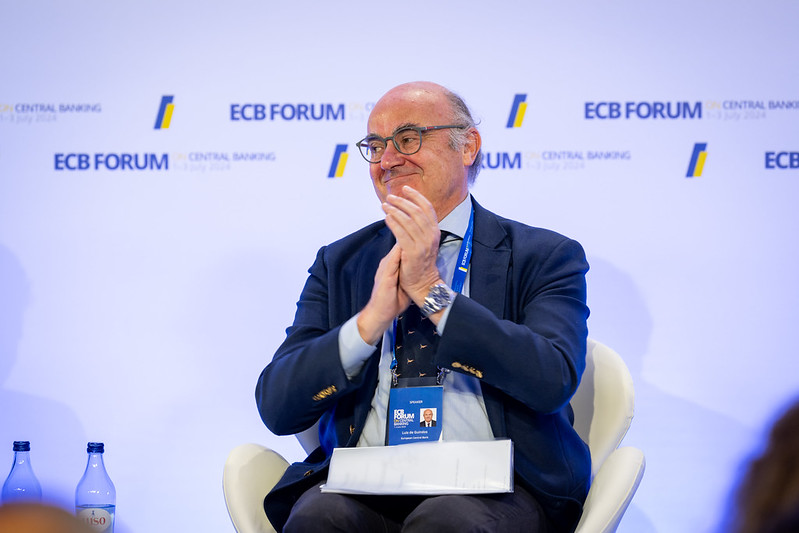By David Barwick – FRANKFURT (Econostream) – European Central Bank Vice President Luis de Guindos on Saturday said that disinflation was proceeding well but that downside risks to growth were materialising.
In an interview with Austrian daily Die Presse, de Guindos said that the duration of the ECB’s easing cycle hinged on the evolution of inflation.
‘But we can be optimistic because our latest forecasts show that, from the end of this year, inflation will be very close to our target of 2%’, he said.
There were three ‘additional factors’ favouring disinflation, he said, citing the exchange rate, cheaper energy and commodities and the possibility that uncertainty about tariffs could dampen wage growth even more than was already the case.
‘All these elements contribute to bringing inflation further down’, he said. ‘And this is the decisive factor in whether we continue to lower interest rates.’
De Guindos dismissed as ‘not very helpful’ conjecture as to the neutral rate, saying that policy was grounded in inflation developments, the ECB’s projections and the transmission to the real economy of previous steps.
‘And, as I said, we are optimistic that we will sustainably achieve our inflation target’, he repeated.
Headline and core inflation were both headed towards the ECB’s objective, he said. Services inflation, of special importance, closely reflected wage developments, with respect to which the ECB was also ‘seeing signs of a slowdown’, he said.
There was ‘not necessarily’ a risk of substantial euro depreciation akin to that of 2022, when the Fed tightened policy before the ECB, according to de Guindos. There were no indications at present that the common currency would weaken, though this would depend on the outcome of the tariff discussion, he said.
It was ‘important to moderate exchange rate volatility’, he said.
De Guindos confirmed that the last set of macroeconomic projections, dating from before the US tariff announcement, did not correspond to the new circumstances. Uncertainty in the wake of that announcement would probably dampen investment and consumption, he said.
‘We already pointed to such downside risks in our March projections’, he said. ‘The risks are now materialising.’
Nevertheless, the region as a whole was likely to just skirt recession, he said.
However, an escalation of the trade conflict would take a ‘very serious’ toll on growth, he said, though he added that because of the redirection of trade flows apt to occur, the consequences were hard to predict.

